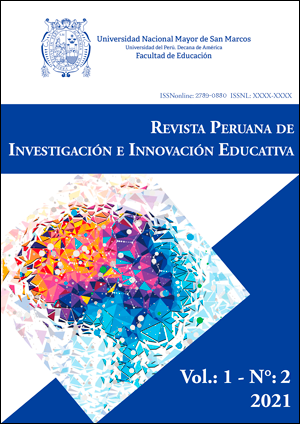Educational Assessment, a Way to Start Making Inclusive Education a Reality
DOI:
https://doi.org/10.15381/rpiiedu.v1i2.20758Keywords:
evaluation, inclusive education, diversity, learning, inclusive assessmentAbstract
The purpose of this study was to offer information on educational evaluation and inclusive education as complementary processes that involve the application of different evaluation techniques and instruments based on the characteristics of the students. The use of results and decision-making based on such information are part of inclusive education; However, if we refer to inclusive education, why not talk about inclusive assessment? Methodologically it is a theoretical study of systematic search and information analysis. It was concluded that educational evaluation and inclusive education are complementary processes for providing information and support to teachers and students.
Downloads
Published
Issue
Section
License
Copyright (c) 2021 Luz Areli Mendoza Méndez

This work is licensed under a Creative Commons Attribution 4.0 International License.
AUTHORS RETAIN THEIR RIGHTS:
The authors retain their trademark and patent rights, and also on any process or procedure described in the article.
The authors retain the right to share, copy, distribute, execute and publicly communicate the article published in Revista peruana de investigación e innovación educativa (for example, place it in an institutional repository or publish it in a book), with an acknowledgment of its first publication in Revista peruana de investigación e innovación educativa.
The authors retain the right to make a subsequent publication of their work, to use the article or any part of it (for example: a compilation of their works, notes for conferences, thesis, or for a book), provided that they indicate its first publication in Revista peruana de investigación e innovación educativa (referencing authors of the work, journal, volume, number and date).






